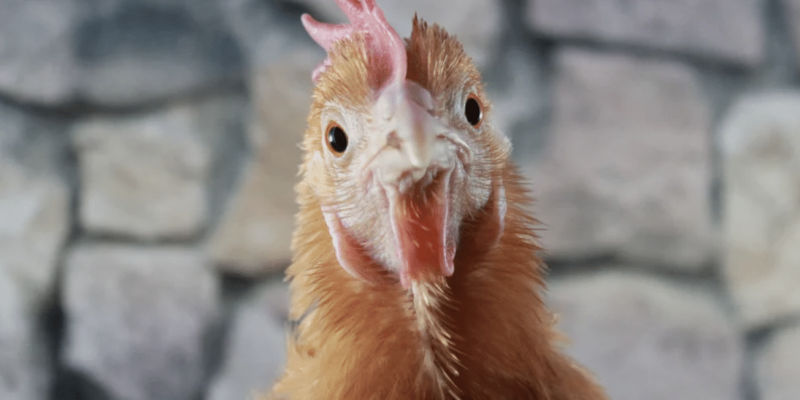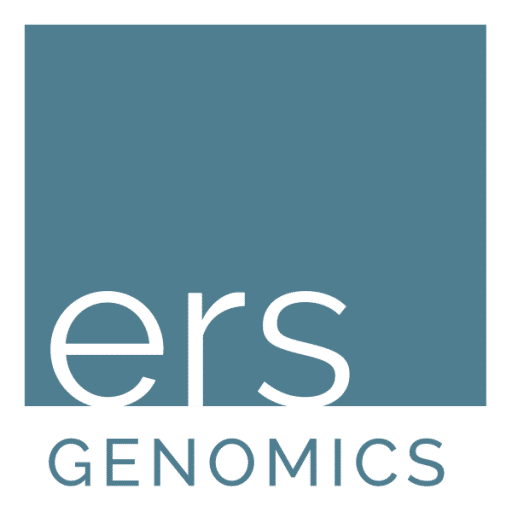Our library of insights

Feathered Pharmaceuticals
- Version
- Download 2833
- File Size 1.91 MB
- File Count 1
- Create Date 14 September 2023
- Last Updated 14 September 2023

CRISPR on your wrist
Wearable CRISPR microneedle patch for extraction & monitoring of cell-free DNA.
- Version
- Download 3084
- File Size 2 MB
- File Count 1
- Create Date 30 August 2023
- Last Updated 30 August 2023

Three Blind Mice
Treating visual impairment with CRISPR/Cas9
- Version
- Download 2956
- File Size 9 MB
- File Count 1
- Create Date 31 July 2023
- Last Updated 31 July 2023

Opening Pandora's Box
Melting Ice Caps, Ancient Viruses & CRISPR/Cas9
- Version
- Download 3249
- File Size 2 MB
- File Count 1
- Create Date 25 July 2023
- Last Updated 25 July 2023

CRISPR/Cas9 Prokaryotes
Unlocking the power of Prokaryotes
- Version
- Download 2890
- File Size 1 MB
- File Count 1
- Create Date 15 May 2023
- Last Updated 15 May 2023

Prime Editing
Modifying the CRISPR/Cas9 Platform
- Version
- Download 2556
- File Size 8 MB
- File Count 1
- Create Date 10 May 2023
- Last Updated 10 May 2023

Bioremediation
The CRISPR solution to environmental disasters
- Version
- Download 3573
- File Size 1 MB
- File Count 1
- Create Date 25 April 2023
- Last Updated 25 April 2023

CRISPR/Cas9
Understanding this technology and its diverse deployments.
- Version
- Download 3155
- File Size 7 MB
- File Count 1
- Create Date 30 March 2023
- Last Updated 30 March 2023

Base Editing
CRISPR/Cas9 Evolution
- Version
- Download 3478
- File Size 3 MB
- File Count 1
- Create Date 1 March 2023
- Last Updated 27 April 2023

CRISPR Aquaculture
How CRISPR/Cas9 is paving the way for sustainable aquatic farming.
- Version
- Download 2422
- File Size 18 MB
- File Count 1
- Create Date 7 February 2023
- Last Updated 7 February 2023

The Future of Food
What’s next for the meat and dairy industries?
- Version
- Download 2519
- File Size 2 MB
- File Count 1
- Create Date 11 January 2023
- Last Updated 13 April 2023

Genome Modification
A new paradigm for Biofuels.
- Version
- Download 2308
- File Size 1.98 MB
- File Count 1
- Create Date 11 January 2023
- Last Updated 6 March 2023

CRISPR Antibiotics
Defence into Offense
- Version
- Download 2887
- File Size 9.74 MB
- File Count 1
- Create Date 11 January 2023
- Last Updated 13 March 2023

CRISPR Animals
Expanding the animal genomic wheelhouse
- Version
- Download 1886
- File Size 6.07 MB
- File Count 1
- Create Date 11 January 2023
- Last Updated 6 March 2023

What’s hot in Synthetic Biology?
Commentary by Eric Rhodes, CEO ERS Genomics.
- Version
- Download 2805
- File Size 691.44 KB
- File Count 1
- Create Date 11 January 2023
- Last Updated 6 March 2023

Picking the right CRISPR system for your research
Download our guide to Cas9vsCas12
- Version
- Download 3095
- File Size 82.66 KB
- File Count 1
- Create Date 11 January 2023
- Last Updated 6 March 2023

Patent Update
August2021
- Version
- Download 2509
- File Size 86.20 KB
- File Count 1
- Create Date 11 January 2023
- Last Updated 6 March 2023

Advancing the Frontiers of Biotherapeutics
CRISPR/Cas9 for Therapeutic Protein Production
- Version
- Download 2434
- File Size 1 MB
- File Count 1
- Create Date 11 January 2023
- Last Updated 16 March 2023

Livestock Factsheet
View our Livestock factsheet
- Version
- Download 2343
- File Size 65.72 KB
- File Count 1
- Create Date 11 January 2023
- Last Updated 6 March 2023

The facts about CRISPR/Cas9 Licensing
Misperceptions vs. reality.
- Version
- Download 2608
- File Size 119 KB
- File Count 1
- Create Date 11 January 2023
- Last Updated 7 March 2023

Start-up Guide
Download our guide
for Start ups
- Version
- Download 2677
- File Size 1.91 MB
- File Count 1
- Create Date 11 January 2023
- Last Updated 6 March 2023

CRISPR/Cas9
For Rapid Vaccine Development
- Version
- Download 2762
- File Size 713 KB
- File Count 1
- Create Date 11 January 2023
- Last Updated 28 July 2023

Do you need a license to use CRISPR in drug discovery & development research?
What you need to know
- Version
- Download 3045
- File Size 209.52 KB
- File Count 1
- Create Date 11 January 2023
- Last Updated 6 March 2023

CRISPR/Cas9 Yeast
Replacing the need for plant-derived metabolites through yeast engineering
- Version
- Download 3521
- File Size 2.94 MB
- File Count 1
- Create Date 11 January 2023
- Last Updated 6 March 2023

CRISPR & the Switch to Sustainable Cosmetics
How gene editing can reduce demand for precious and natural resources
- Version
- Download 2875
- File Size 432.96 KB
- File Count 1
- Create Date 11 January 2023
- Last Updated 6 March 2023

High-Throughput screening
Transformed by CRISPR
- Version
- Download 2213
- File Size 2.57 MB
- File Count 1
- Create Date 11 January 2023
- Last Updated 6 March 2023
Lecture Video
Nobel Prize in Chemistry 2020
- Version
- Download 0
- File Size 4.00 KB
- File Count 1
- Create Date 11 January 2023
- Last Updated 11 January 2023

By loading the video, you agree to YouTube's privacy policy.
Learn more
Patents and Licensing FAQ's
Via direct license from Emmanuelle Charpentier (to her co-ownership rights in the CVC patents), ERS Genomics has the right to provide licenses to this fundamental portfolio of foundational CRISPR/Cas9 patents. A license from ERS provides access to the full CVC portfolio and no other license from any of the other co-owners (University of California or University of Vienna) is required. ERS is the only company whose sole focus is on out-licensing to maximize commercial access to the CVC global patent portfolio.
CVC stands for University of California, University of Vienna, and Emmanuelle Charpentier and is the acronym used to describe the owners of what are commonly referred to as the UC Berkeley CRISPR patents.
In Europe the CVC inventors have been awarded three broad patents on the CRISPR/Cas9 technology that include claims to the following:
- A composition comprising a chimeric Cas9 protein and a DNA targeting RNA which includes a DNA-targeting segment and a protein-binding segment comprising tracrRNA and CRISPR RNA (crRNA)
- A method of modifying a target DNA in a single-cell eukaryotic organism, an animal cell, or a plant cell comprising contacting the target DNA with a CRISPR/Cas9 complex
- A method of modifying a target DNA comprising contacting the target DNA with a CRISPR/Cas9 complex where the crRNA and tracrRNA are covalently linked by intervening nucleotides (single guide RNA)
In the USA the CVC portfolio currently contains 35 issued or allowed and 35 pending patents which claim the following:
- Compositions and methods of using Cas9 with a guide RNA to form a CRISPR/Cas9 complex that binds a specified DNA sequence
- Various formats for delivering these complexes in cells of all types
- Use of the CRISPR/Cas9 complex to cleave DNA (resulting in knock-outs, insertions or mutations)
- Use of mutated Cas9 to ‘nick’ DNA (in place of cleavage) or to bring an effector domain to a specified DNA sequence to regulate gene expression in a cell
- Compositions of guide RNAs in a variety of formats including various lengths, chemical modifications, and base compositions
Outside of the US and EPO the CVC patent portfolio includes 33 issued and allowed patents with an additional 43 pending applications covering methods and compositions similar to the EPO patents.
ERS founder (and Nobel Prize winner!) Emmanuelle Charpentier is a co-owner of the CVC patents and formed ERS to provide licenses to companies and groups looking to commercialize products and services from the technology. ERS can provide licenses in all areas except use of CRISPR to directly treat a human. The gene/cell therapy rights to CRISPR were given to CRISPR Therapeutics so that they could focus on curing human diseases. ERS meanwhile, is able to provide full focus on other important areas without the distraction of developing its own therapeutics, products, or services. ERS does not compete with any of its licensees and is able to treat all parties fairly.
If you are performing commercial activities in any of the following areas, a license from ERS would be required:
- Internal R&D use¹
- Discovery and validation of novel targets
- Discovery and screening of novel drug candidates
- Cell line and animal model generation, including iPSC and stem cells
- Commercialization of research tools, kits, or reagents
- Commercialization of cell lines and animal models for laboratory research
- CRO, CMO, and CDMO services including GMP production of healthcare products
- Clinical diagnostics
- Companion animal healthcare
- Livestock
- Industrial production of materials such as enzymes, biofuels and chemicals
- Synthetic biology
¹ Importantly, most users who purchase reagents from 3rd party licensee providers may only conduct discovery research, preclinical research, and clinical research activities that fall within safe harbor statutes of 35 U.S.C. §271(e)(1) without obtaining additional licenses.
No other license from any of the other co-owners of the CVC patents would be required, however there is a large and growing list of CRISPR/Cas9 intellectual property throughout the world and the need for other licenses depends on where you are located in the world and what types of applications you are pursuing. Each user must analyze their own situation with regard to these factors. However, any use of the CRISPR/Cas9 complex will require a license to the fundamental intellectual property available from ERS.
The over 30 CVC issued patents are excluded from this interference, so only the Broad patents are at risk of being fully revoked.
If CVC wins… the Broad patents are likely fully revoked, only the CVC patents will be valid.
If Broad wins… the status quo will be preserved in the U.S. with BOTH groups having valid claims that cover use of CRISPR/Cas9 in eukaryotes.
No, those patents are separate from the CVC family of patents and practice of any of the claims under those patents also requires a license to the underlying CVC patents.
CVC’s issued patents are to the composition and use of the core type 2 CRISPR/Cas9 complex to modify DNA in ANY ENVIRONMENT without limitation to uses in eukaryotic cells. CVC further has issued patents on single guide RNA (sgRNA) which greatly enhances the efficiency of CRISPR gene editing in many applications.
In the United States, Broad’s issued patents (currently subject to a patent office initiated interference) are for certain methods of genome editing and uses only in eukaryotic cells.
In December, 2012, Broad requested “accelerated examination” of its application. This meant the USPTO considered the application more quickly. CVC did not request accelerated examination when it applied for a patent in May, 2012.
CRISPR research is a large field that involves contributions from many talented scientists around the world. The USPTO had issued more than 570 patents as of September 2020, with claims to CRISPR and/or Cas9 to approximately 900 inventors from more than 200 applicant organizations. The European Patent Office (EPO) had issued more than 190 such patents to more than 460 inventors from about 110 applicant institutions. In addition, there have been more than 9,200 applications filed (and published but not yet granted) around the world.
The Current CVC patent list can be viewed here.
Over the next several years, there will be many more patents issued in the CRISPR field, to many inventors from many institutions, in recognition of each individual’s contribution to advancing CRISPR technology.
About ERS
ERS was founded in 2014.
No, ERS is privately owned.
Although our team has significant expertise in genome editing, ERS is focused on licensing of the patents to enable others to use the technology and so we do not offer ancillary services.
Yes, that can be found here.
